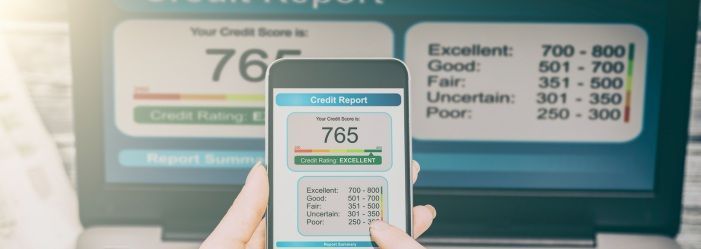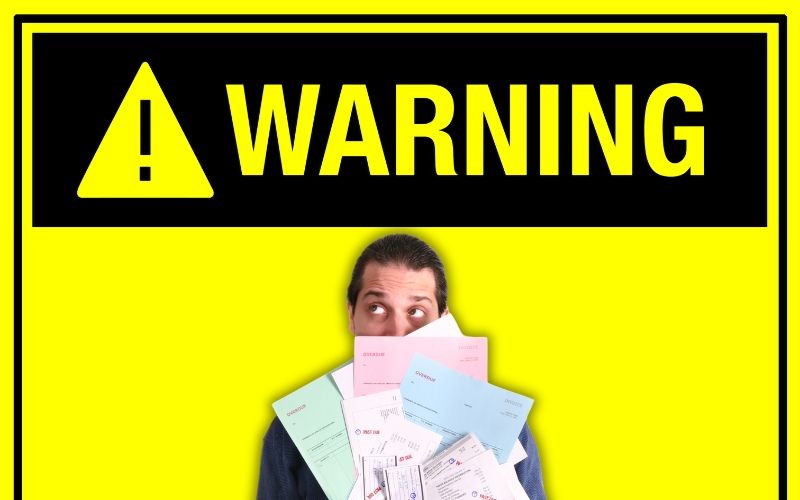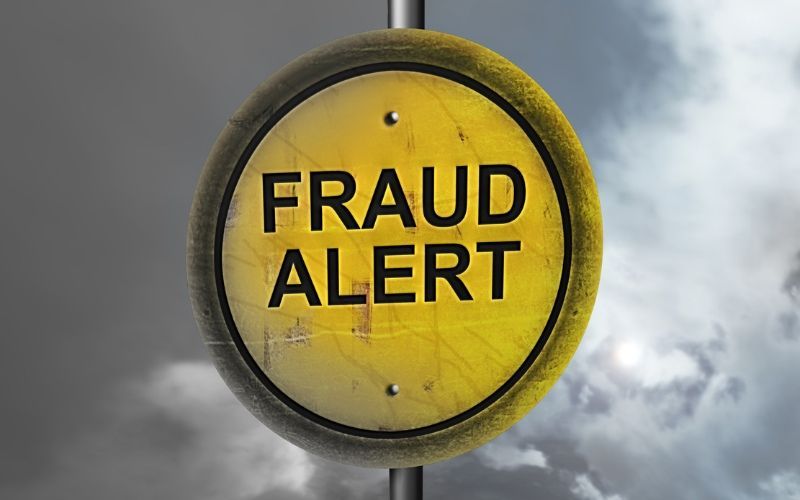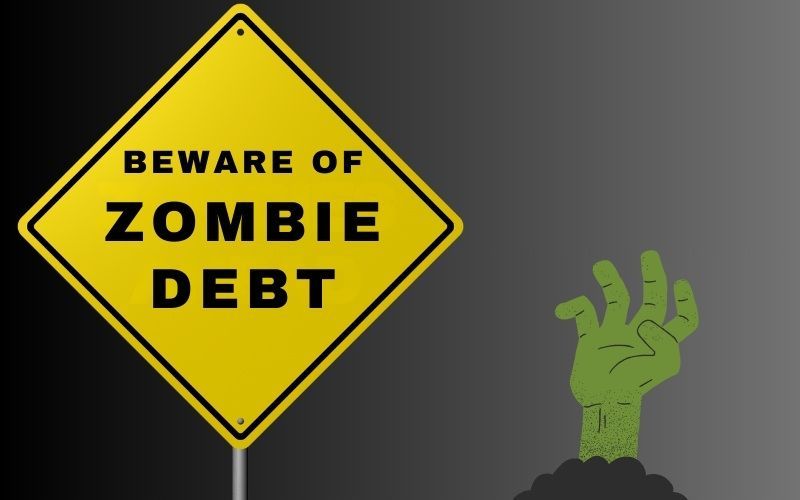Why You Need To Check Your Credit Report Regularly
Last Updated: March 8, 2024
The Importance of Monitoring Your Credit Report

Pacific Debt Relief is not a credit repair organization nor does our program aim to improve your credit score. The information below is for educational purposes to help consumers make informed decisions as it relates to credit and debt.
Have you ever wondered how a simple glance at your credit report could save you from unforeseen financial troubles or even unlock better rates on loans and insurance? Imagine applying for a mortgage for your dream home, only to discover that errors on your credit report, errors that could have been corrected months ago are now standing in your way.
We understand the critical role your credit report plays not just in securing loans, but in many other aspects of your financial life. From ensuring you get the best possible rates on insurance to protecting you from the growing threat of identity theft, the importance of regular credit report checks cannot be overstated.
In this post, we'll dive deep into the why and how of keeping a vigilant eye on your credit report. You'll learn the simple yet powerful steps you can take today to monitor your credit health, spot and dispute errors, and even improve your credit score over time. Whether you're planning a major purchase or just aiming to maintain your financial wellbeing, understanding the ins and outs of your credit report is a crucial first step.
Want to skip the article and speak directly to a debt specialist? Click here for a free consultation.
Good Credit Can Lower Your Car Insurance Rates
You may think that your car insurance rate is only influenced by your driving records and how many claims you have filed, but that is not necessarily the case. Many car insurance companies also look at the credit profile of drivers before setting their premium rates.
If you are shopping for a new car insurance policy, it is a good idea to pull your credit report first. A mistake on your credit report could result in higher premiums and wasted money.
You Can Recognize Identity Theft Before it Can Hurt You
Identity theft is a growing problem, and the results can be quite serious. Falling victim to an identity thief could leave you thousands of dollars in debt – and cost you thousands more as you try to clear your name and regain your reputation.
A careful review of your credit profile is one of the best defenses against identity theft, which can significantly ruin your credit score if not promptly addressed. If someone is opening accounts in your name or taking out loans, that information will show up first on your credit report. Notifying the credit reporting agency – and the police – of any unauthorized activity is the best way to nip identity theft in the bud.
Signs Your Identity Has Been Stolen
If you see any of these red flags on your credit report, it could indicate identity theft:
- Accounts or credit cards you did not open
- Inquiries from creditors you don't recognize
- Accounts going into collections you don't recognize
- Your personal information, like SSN or address, is being reported inaccurately
- A sudden drop in your credit score without explanation
If you suspect identity theft, take action immediately by placing fraud alerts and filing police reports. Timeliness is key to limiting the damage. It's important to note that inquiries can affect your credit score. Understand how long inquiries stay on your credit report to gauge their potential impact.
Bad Credit Could Cost You Your Dream Job
You already know that the local mortgage lender will check your credit report carefully, but what about your future boss? Many companies routinely screen the credit reports and credit scores of job seekers – and what they find could cost you the job.
Be sure to check your credit report carefully before you enter the job market. Check for any potential errors that could lower your credit score and cause a potential employer to look unfavorably at your job application.
As you can see, your credit report affects much more than your ability to get a loan. Knowing how your credit report is used, and how to check it, can help you fight identity theft, save money on car insurance, or even land a great new job.
If you haven’t already done so, be sure to pull a free credit report over at annualcreditreport.com.
Tips for Improving Your Credit Score
Improving your credit score takes time and discipline, but it's possible with some simple habits.
Here are some effective ways to start boosting your credit score:
- Pay all bills on time - Payment history has a major influence on your score. Set up automatic payments or payment reminders to avoid missed or late payments.
- Keep credit card balances low - High balances relative to your credit limit (your utilization ratio) hurt your score. Aim to keep balances below 30% of your limit on each card.
- Limit new credit applications - Too many hard inquiries from applying for new credit make you look risky. Only open new accounts you actually need.
- Build a longer credit history - Having a rich credit history with older accounts demonstrates reliability. Allow accounts to age rather than closing them.
- Fix errors on your credit report - Incorrect or outdated information can drag down your score. Dispute any errors with the credit bureaus.
- Consider becoming an authorized user - Being added as an authorized user on someone else's account can help build your history.
- Pay down debt - Owe less overall helps lower your utilization and improves your creditworthiness. Make a debt payoff plan.
- Diversify credit types - Having different types of accounts (credit cards, loans, etc) shows you can handle varied credit.
- Sign up for credit monitoring - Monitoring can alert you to credit-report changes and help detect errors or fraud early.
With diligence and smart credit habits, you can rebuild and improve your credit score over time. Check your progress by reviewing your credit report regularly.
How Credit Scores Are Calculated
Understanding what goes into your credit score can help you focus your efforts in the right areas.
Here is an overview of what factors determine your score:
- Payment history - Whether you pay bills on time. This is typically the biggest factor, accounting for 35% of your score.
- Credit utilization - How much of your available credit you are using. It's recommended to keep this below 30%. This makes up 30% of your score.
- Credit history length - How long you've had credit accounts open. Longer histories improve your score. This is 15% of your score.
- Credit mix - Whether you have experience managing different types of credit like credit cards, retail accounts, installment loans, and mortgages. This is 10% of your score.
- New credit - If you have recently opened new accounts, especially several in a short period, it can indicate a higher risk and hurt your score. This is 10% of your score.
FAQs
-
How can I get my free credit report?
You can get a free credit report from each of the three major credit bureaus once per year at AnnualCreditReport.com. Beware of other sites claiming to offer "free" reports but require you to sign up for paid services.
-
How often should I check my credit report?
Experts suggest reviewing your credit report at least annually, with more frequent checks advisable when applying for significant loans or credit cards. Quarterly reviews are recommended to promptly identify any errors or fraudulent activities. To stay on top of your credit health with ease, explore our list of the 8 Best Apps for Monitoring Your Credit Score, which can help you monitor your credit report and score more effectively.
-
What's the difference between my credit report and my credit score?
Your credit report is your full credit history as reported by lenders. Your credit score is a three-digit number calculated from your credit report data to represent your creditworthiness.
-
What is a good credit score?
Credit scores range from 300 to 850. A score above 700 is generally considered good, with 740 or higher being excellent. Aim to get your score above 700 to get approved for prime-rated credit, and if you're below that, consider these strategies to elevate your credit score by over 100 points.
-
If I find errors on my credit report, how do I fix them?
If you find mistakes on your credit report, file a dispute with the relevant credit bureau online or by mail. Provide documentation. The bureau must investigate within 30 days.
-
How long does negative information stay on my credit report?
Most negative marks like late payments stay on your credit report for seven years. Bankruptcies stay for up to 10 years. Older items are removed from your credit history.
Conclusion
Checking your credit report and score regularly is vital for protecting your finances and accessing credit. Monitor your credit by obtaining your free annual credit reports and reviewing them for errors and suspicious activity. Consider signing up for credit monitoring as well to keep a close eye on your credit profile.
Take steps to improve your credit by paying bills on time, lowering debts, and correcting any inaccuracies you find. With diligence, you can rebuild damaged credit over time. Maintaining good credit saves you money on loans and insurance and prevents issues like identity theft from destroying your finances.
Credit matters for more than just borrowing money—it impacts many areas of your financial life. Take control of your credit health by making credit report checks a routine part of your financial habits. Monitoring and improving your credit profile will pay dividends for years to come.
If you are struggling with overwhelming debt and want to explore your debt relief options, Pacific Debt Relief offers a
free consultation to assess your financial situation. Our debt specialists can provide objective guidance relevant information and support to help find the right debt relief solution.
Pacific Debt Relief is not a credit repair organization nor does our program aim to improve your credit score. The information below is for educational purposes to help consumers make informed decisions as it relates to credit and debt.
Are you ready for debt relief help now?
Get Free Consultation- Accredited by Better Business Bureau with BBB A+ rating(4.93 rating and 1542 reviews)
- US News and World Reports and Bankrate ranked Pacific Debt as one of “The Best Debt Settlement Companies of 2020”
- 6.9 star rating by BestCompany.com (over 2379 client reviews)
- 4.8 star rating by TrustPilot based (over 1477 verified consumer reviews)
- ConsumerAffairs.com Accredited (over 543 verified reviews with an average rating of 5 stars)
- A Top 10 Rated Company by TopTenReviews.com , ConsumersAdvocate.com and Top10debtconsolidation.com
- 4.7 star rating by Google (220 client reviews)
- 100% rating by SuperMoney (9 client reviews)
Pacific Debt Relief
750 B Street Suite 1700
San Diego, CA 92101
Hours of Operation
Mon-Thurs: 6am - 7pm PST
Friday: 6am - 4:30pm PST
Saturday: 7:30am - 4:30pm PST
Clients
Phone: (877) 722-3328
Fax: (619) 238-6709
Email: cs@pacificdebt.com
Non-Clients
Phone: (833) 865-2028
Fax: (619) 238-6709
Email: inquiries@pacificdebt.com
"To eliminate debt one household at a time, while placing people first." - Pacific Debt
© 2024 Pacific Debt Inc. dba Pacific Debt Relief, all rights reserved.
California Privacy Policy |  Do Not Sell My Personal Information
Do Not Sell My Personal Information
GLBA Privacy Notice | CDRI Accredited Member
*We do not discriminate on the basis of race, color, religion, sex, marital status, national origin or ancestry.
*Please note that all calls with the company may be recorded or monitored for quality assurance and training purposes.
*Your visit to our website may be monitored and recorded from essential 3rd party scripts.
*Clients who make all their monthly program deposits pay approximately 50% of their enrolled balance before fees, or 65% to 85% including fees, over 24 to 48 months (some programs lengths can go higher). Not all clients are able to complete our program for various reasons, including their ability to save sufficient funds. Our estimates are based on prior results, which will vary depending on your specific circumstances. We do not guarantee that your debts will be resolved for a specific amount or percentage or within a specific period of time. We do not assume your debts, make monthly payments to creditors or provide tax, bankruptcy, accounting or legal advice or credit repair services. Pacific Debt is not a credit repair firm nor do we offer credit repair services. Our service is not available in all states and our fees may vary from state to state. Please contact a tax professional to discuss potential tax consequences of less than full balance debt resolution. Read and understand all program materials prior to enrollment. The use of debt settlement services will likely adversely affect your creditworthiness, may result in you being subject to collections or being sued by creditors or collectors and may increase the outstanding balances of your enrolled accounts due to the accrual of fees and interest. However, negotiated settlements we obtain on your behalf resolve the entire account, including all accrued fees and interest. C.P.D. Reg. No. T.S. 12-03825.










